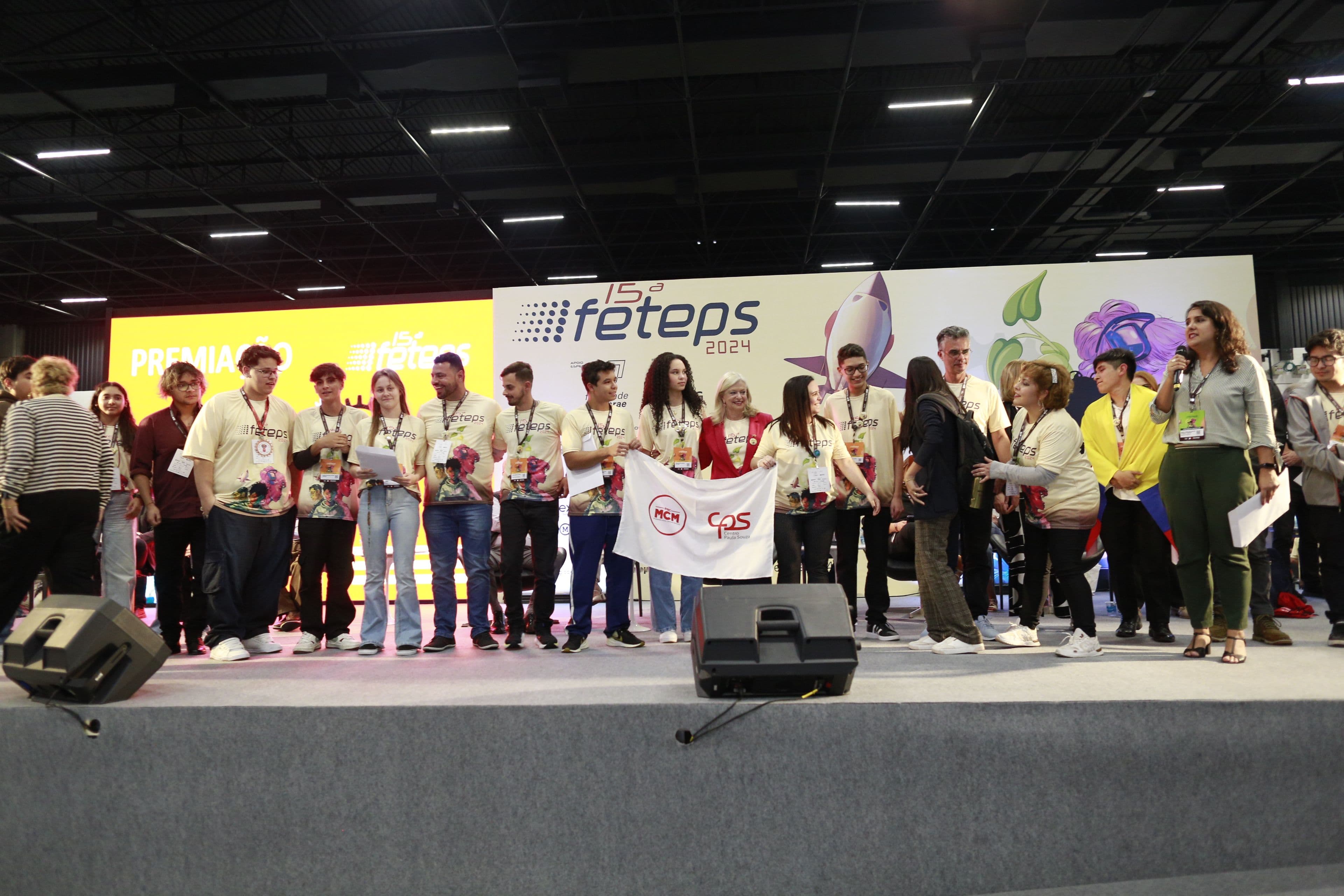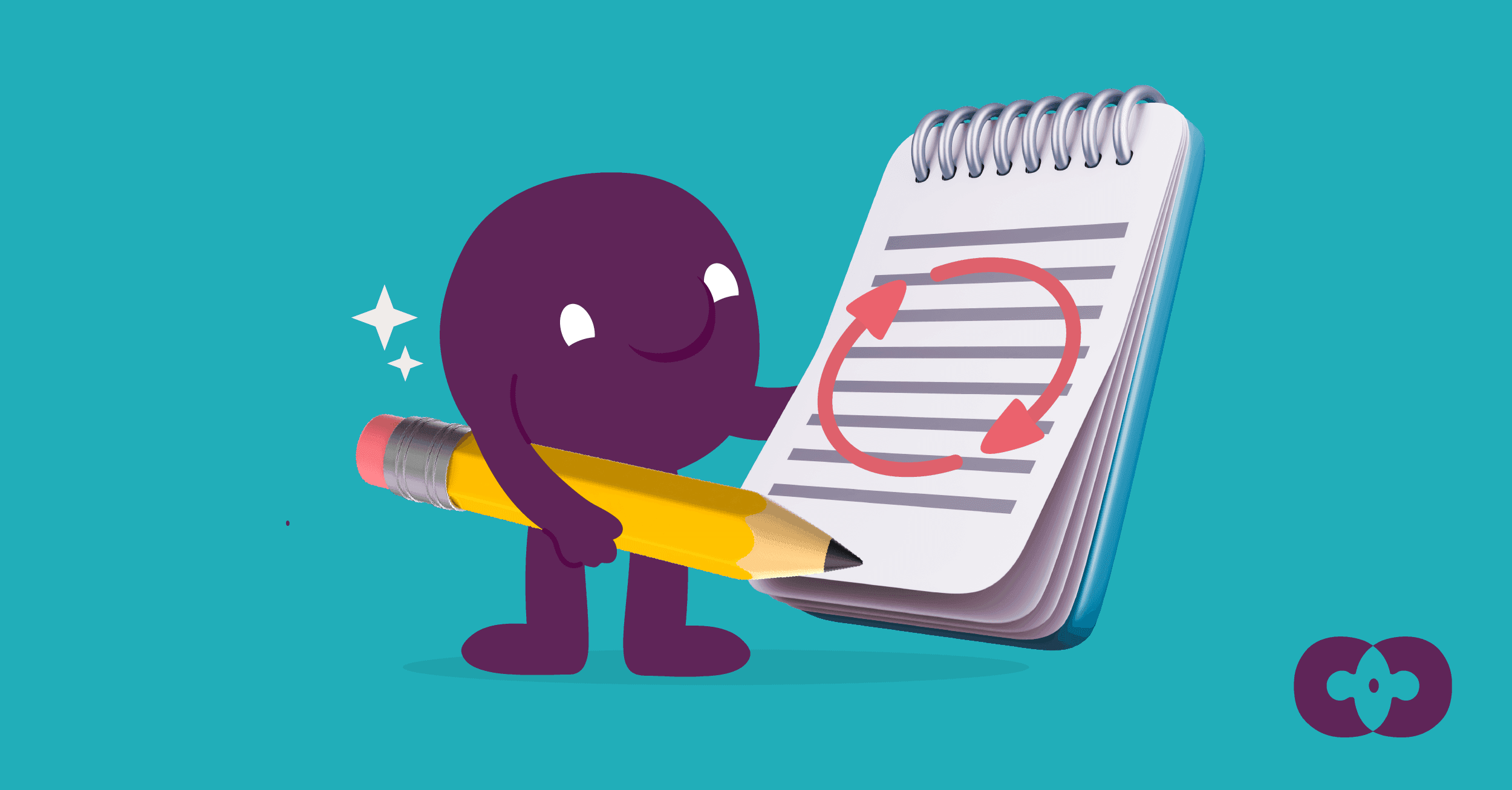
28/08/2024
Award for a World Without Waste recognizes projects related to Circular Economy at FETEPS, in Brazil
The Circular Movement awarded five projects that align with the principles of the Circular Economy at the last edition of the Technological Fair of Centro Paula Souza (FETEPS), held in São Paulo, Brazil, in August. The projects were recognized as part of the 2024 International Award for a World Without Waste, which is already a partner of various young scientist fairs in Brazil and abroad.
The award is an initiative of the Circular Movement and seeks to identify, value, and give visibility to innovative solutions developed by students and educators that promote a world without waste, encouraging the construction of more circular societies.
This was the 15th edition of FETEPS, where 130 projects were presented, both national and international. In addition to Brazil, Mexico, Chile, Colombia, and Ecuador also participated. Over four days, approximately 28,000 people visited the exhibition.
![]() The project manager of Movimento Circular, Maria Carolina Stenico, with the team from Escola Técnica Estadual Profª Maria Cristina Medeiros, located in Ribeirão Pires, in the Metropolitan Region of São Paulo, which took first place. Photo: Circular Movement
The project manager of Movimento Circular, Maria Carolina Stenico, with the team from Escola Técnica Estadual Profª Maria Cristina Medeiros, located in Ribeirão Pires, in the Metropolitan Region of São Paulo, which took first place. Photo: Circular Movement
Check out the winners and honorable mentions:
1st place: RecolheAI: Intelligent Trash Bin, from Escola Técnica Estadual Profª Maria Cristina Medeiros - Ribeirão Pires, São Paulo, Brazil
The top winner was the “RecolheAI: Intelligent Trash Bin” project and developed by students from the Escola Técnica Estadual Profª Maria Cristina Medeiros, located in Ribeirão Pires, Metropolitan Region of São Paulo. This project proposes the creation of smart bins that use automation, the Internet of Things, and Artificial Intelligence to improve the separation and collection of recyclable waste. An initial prototype has already been successfully developed to identify metals. The next step is to incorporate additional technologies for more efficient separation of other materials.
![]() The team behind the project that creates bricks from discarded plastic and construction waste. Image: Circular Movement
The team behind the project that creates bricks from discarded plastic and construction waste. Image: Circular Movement
2nd place: Reuse of Construction Waste (RCC) and Plastic in Brick Manufacturing, from Escola Técnica Estadual Professora Marinês Teodoro de Freitas Almeida - Novo Horizonte, São Paulo, Brazil
The second place went to the team from Escola Técnica Estadual Professora Marinês Teodoro de Freitas Almeida, in the city of Novo Horizonte, also in São Paulo, Brazil. The team proposes the creation of eco-friendly bricks made from discarded plastic (PET) and construction waste, aiming to reduce waste generation and add value to the reuse of these materials. With low cost and high durability, these bricks also offer thermal insulation, promoting a sustainable solution for the environment and people.
![]() Third place went to a school from Ecuador. Image: Circular Movement
Third place went to a school from Ecuador. Image: Circular Movement
3rd place: Extrusora PET Recic: Plastic Bottle Recycling System for 3D Printer Filament Production, from Universidad Nacional de Loja - Ecuador
The team from Universidad Nacional de Loja, in Ecuador, created a device that recycles PET bottles to produce filaments for 3D printers. The prototype uses an Arduino Nano microcontroller (a type of prototyping board) to control the heating and molding of the material, ensuring efficient filament production through a thermostat that monitors the temperature.
![]() Have you ever thought about generating electricity from the mechanical energy produced by pedaling a bicycle? The team from Faculdade de Tecnologia (Fatec) Franco da Rocha, in São Paulo, has. That's why they received one of the honorable mentions. Image: Circular Movement
Have you ever thought about generating electricity from the mechanical energy produced by pedaling a bicycle? The team from Faculdade de Tecnologia (Fatec) Franco da Rocha, in São Paulo, has. That's why they received one of the honorable mentions. Image: Circular Movement
Honorable Mentions
In addition to awarding the top three projects, the Circular Movement granted honorable mentions to two others. The first, titled "Ecopedal: Sustainable Energy," comes from the Faculty of Technology (Fatec) Franco da Rocha, which is also located in São Paulo, Brazil. This project developed a prototype that generates electrical energy from the mechanical energy produced when pedaling bicycles, using recycled materials. Tested in gyms and parks, the prototype not only met the needs for obtaining electrical energy but also generated an energy reserve, being able to “pay for itself” in just 3.6 months through the savings generated or benefits obtained. As a result, it stands out as both a sustainable and economically viable solution.
![]() The second honorable mention went to students from Mexico. They proposed creating temporary housing to shelter people affected by natural disasters. Image: Circular Movement
The second honorable mention went to students from Mexico. They proposed creating temporary housing to shelter people affected by natural disasters. Image: Circular Movement
The second honorable mention was awarded to an initiative developed by a team from Instituto Tecnológico de Tepic in Mexico. Called “Dativa: Emergency Housing for Communities Affected by Natural Disasters,” it proposes the creation of temporary housing to shelter people affected by natural disasters, with a focus on resource efficiency and minimal socio-environmental impact. The flexible design of these houses allows for adaptation and replication in different geographic contexts, as well as encouraging active community participation in the construction process. Three prototypes were developed to meet different housing needs — for two, four, or eight people.
For Maria Carolina Stenico, project manager at Circular Movement and responsible for the Award for a World Without Waste, the initiatives seen at FETEPS "highlight the creativity and commitment of young people in developing practical and innovative solutions that contribute to a more sustainable and circular future."
“Being at FETEPS as an evaluator was very inspiring. The projects I saw there show that students are truly committed to creating solutions that positively impact the world. Their energy and creativity are a clear sign that the present and future are in good hands.”
Stenico states that FETEPS and other science fairs represent a new stage for the Award for a World Without Waste and for the Circular Movement ecosystem by expanding the visibility of innovative solutions and strengthening the network of initiatives that promote the Circular Economy and waste reduction.
Vinicius Saraceni, general director of the Circular Movement, highlights the quality and maturity of the projects presented and awarded at this edition of FETEPS, and thanks Centro Paula Souza for the partnership.
"The Circular Economy is becoming increasingly present in the lives of young people, and the solutions for a circular world depend directly on this new generation, which is now beginning to connect with the job market and innovation."
Through initiatives like the Award for a World Without Waste, the Circular Movement reinforces its commitment to the Circular Economy by recognizing and rewarding innovative solutions that promote sustainability and contribute to the construction of more circular societies. The projects presented at FETEPS demonstrate the creativity, positive impact, and potential of young people to turn environmental challenges into opportunities.
And stay tuned: later this semester, we will continue to discover new winners at knowledge fairs across Latin America!
About Circular Movement
Created in 2020, Circular Movement is a collaborative ecosystem committed to encouraging the transition from a linear to a circular economy. The idea that all resources can be reused and transformed is the motto of the Circular Economy, the basic concept of the movement. Circular Movement is an open initiative that promotes collaborative spaces with the aim of informing individuals and institutions that a waste-free future is possible through education and culture, the adoption of new behaviors, inclusion, and the development of new processes, products, and attitudes. The work is done in partnership with Dow, a chemical, plastics, and agricultural products company based in Michigan, USA. Circular Movement currently impacts 2 million people through its activations and content.
And you? Do you want to learn more about Circular Economy?
If you are interested in learning more about this topic, access Circular Academy, the first free Latin American course on Circular Economy aimed at the general public. Together, in partnership and collaboration, we can make a difference in building a more circular planet.

